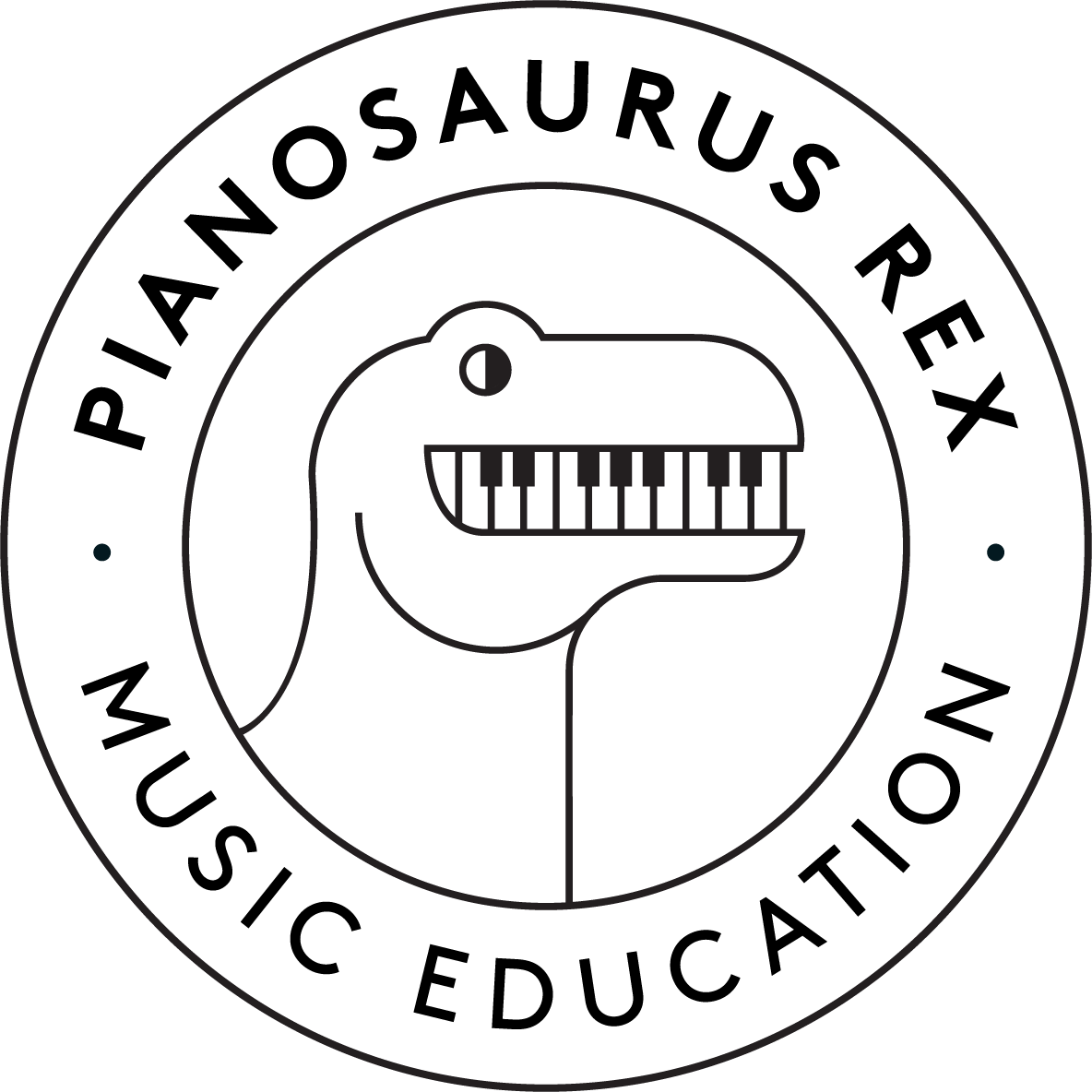
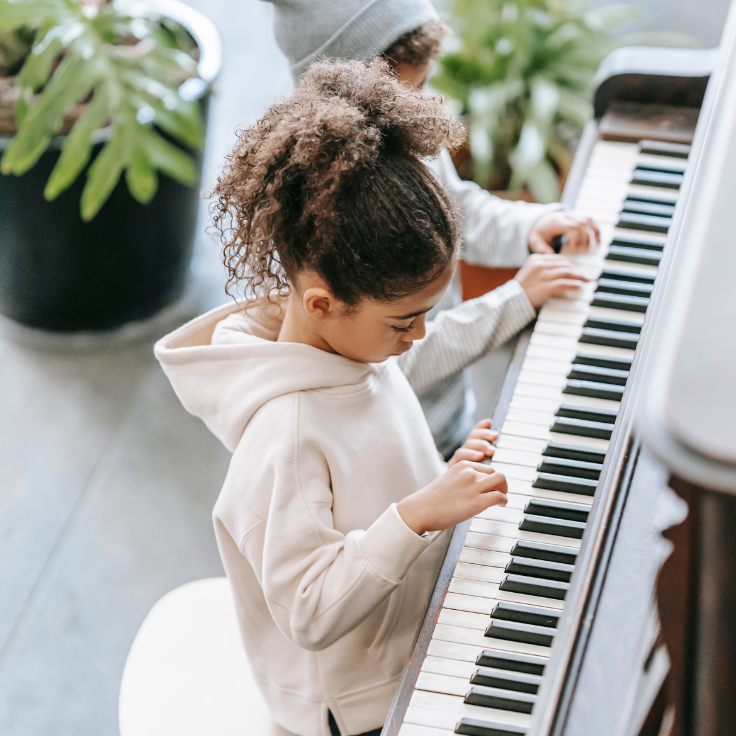
60 minute rotating piano lessons that include individual tuition, theory labs, and practice time.
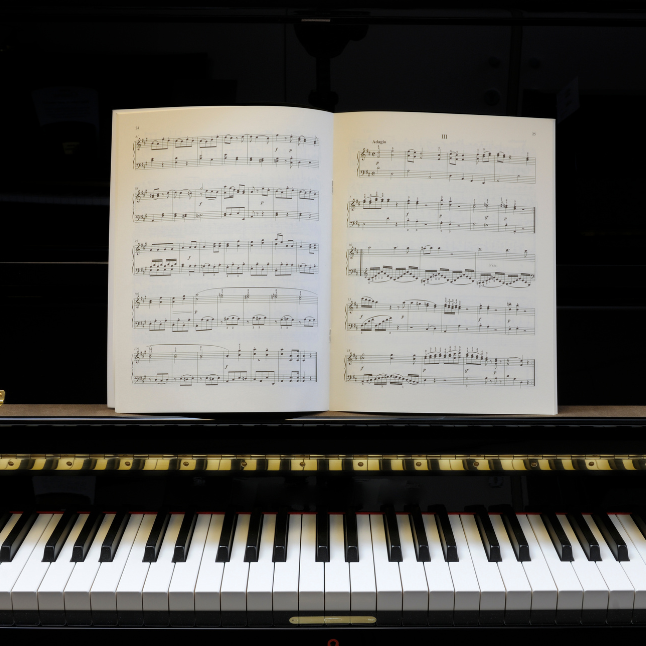
Carefully planned repertoire and technique that provides a great foundation for piano lessons.
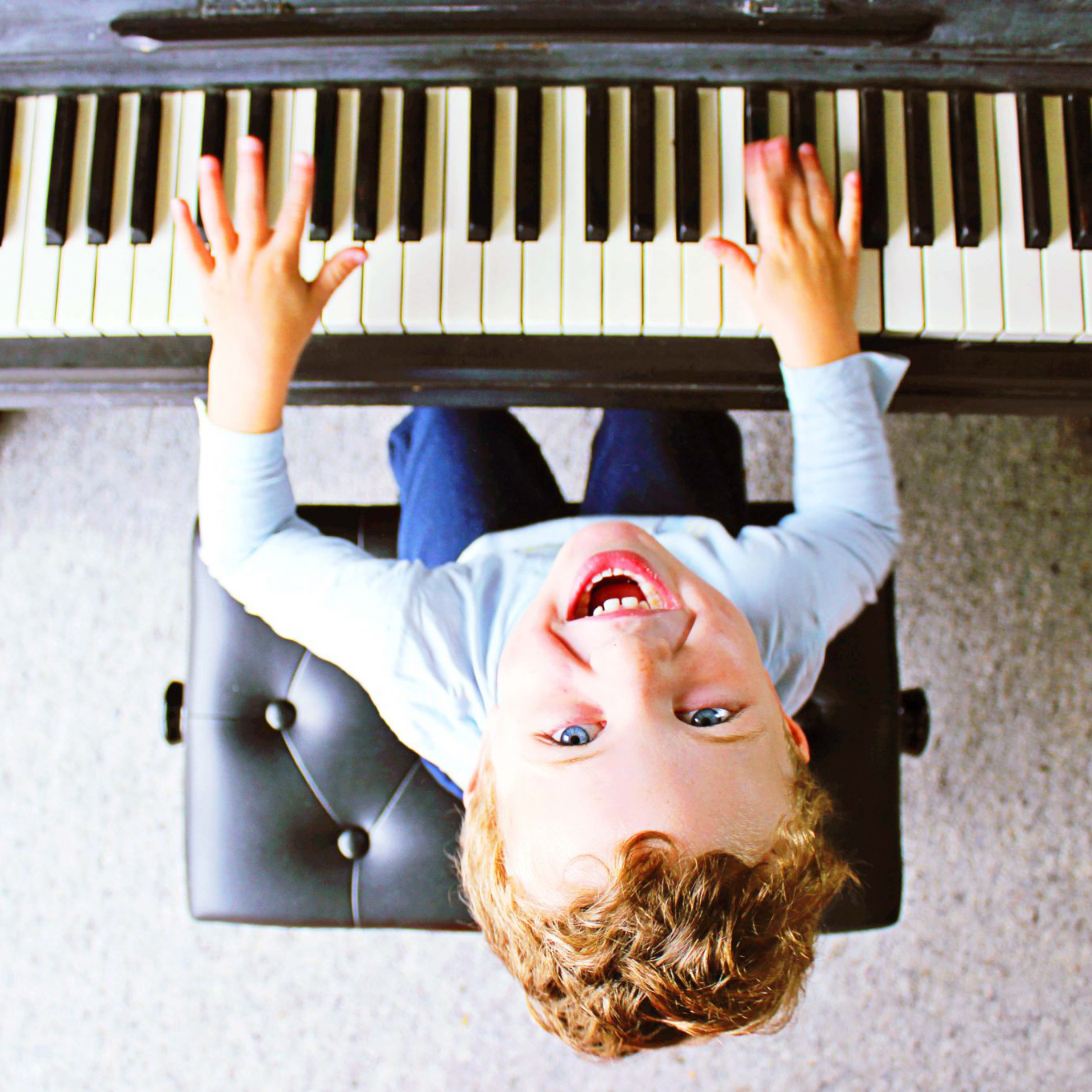
Get involved with creative projects, performance opportunities, and exclusive music workshops.
Bridey makes lessons fun by mixing up what she does and by including lots of games and activities. My daughter loves her lessons at Pianosaurus Rex!
JESS BROWN
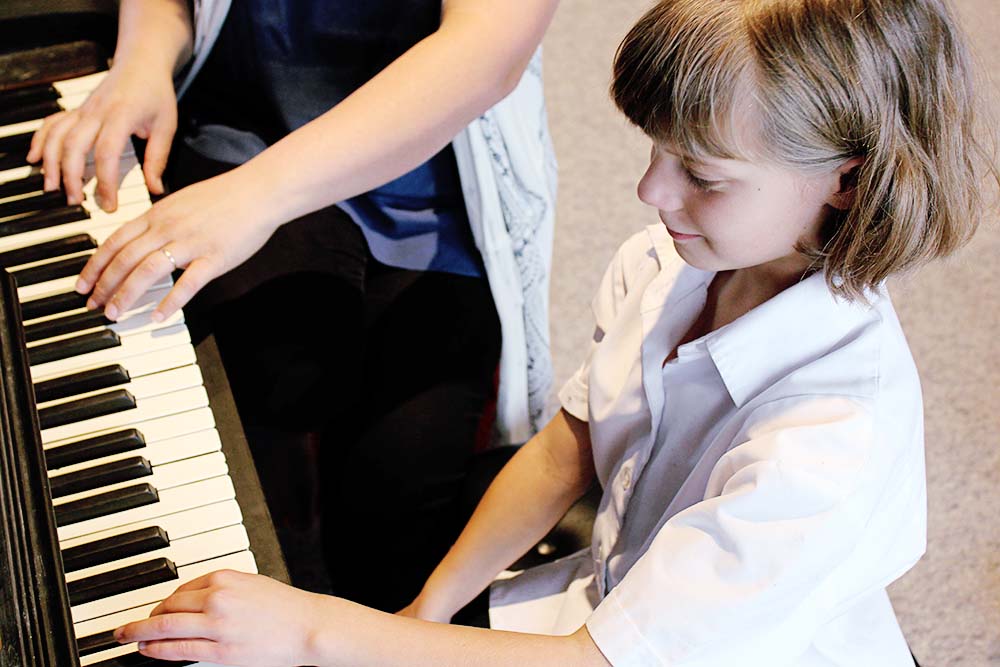
I really love Bridey’s teaching style, she is so patient and introduces quite complex ideas using such fun games. I would highly recommend Bridey to anyone who asks.
LEE CHAPMAN
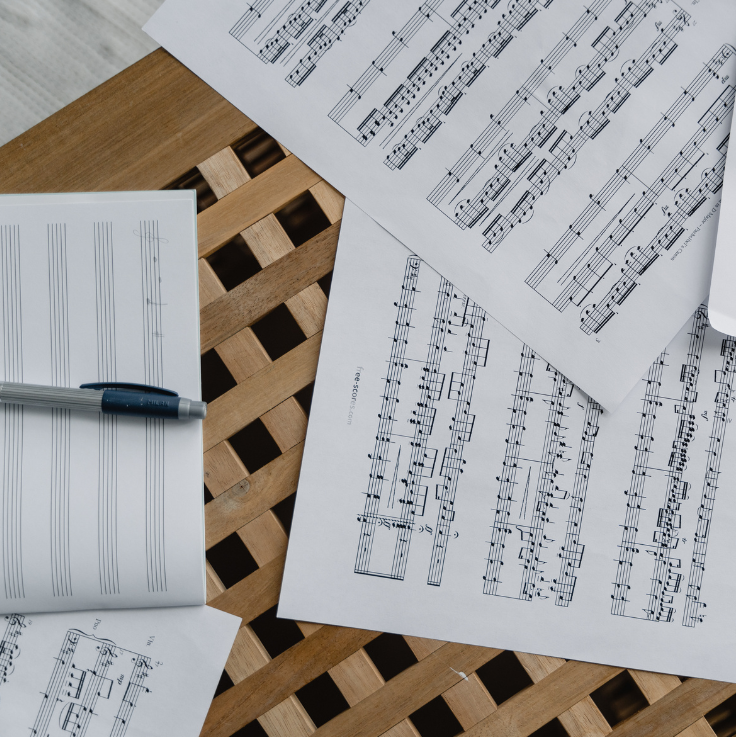
Complete a range of creative projects which expand musical knowledge and help to build transferable skills.
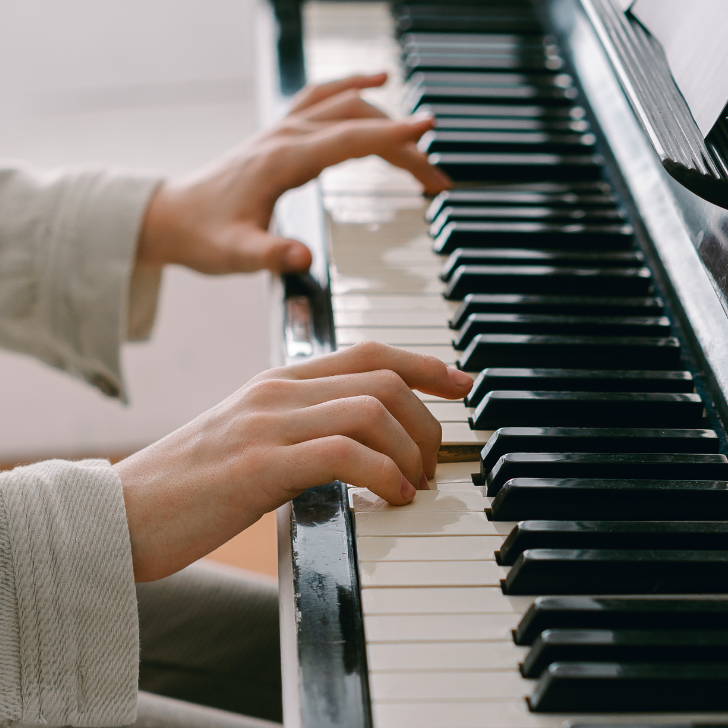
Gain confidence with various performance opportunities, from sharing progress with other students to online recitals.
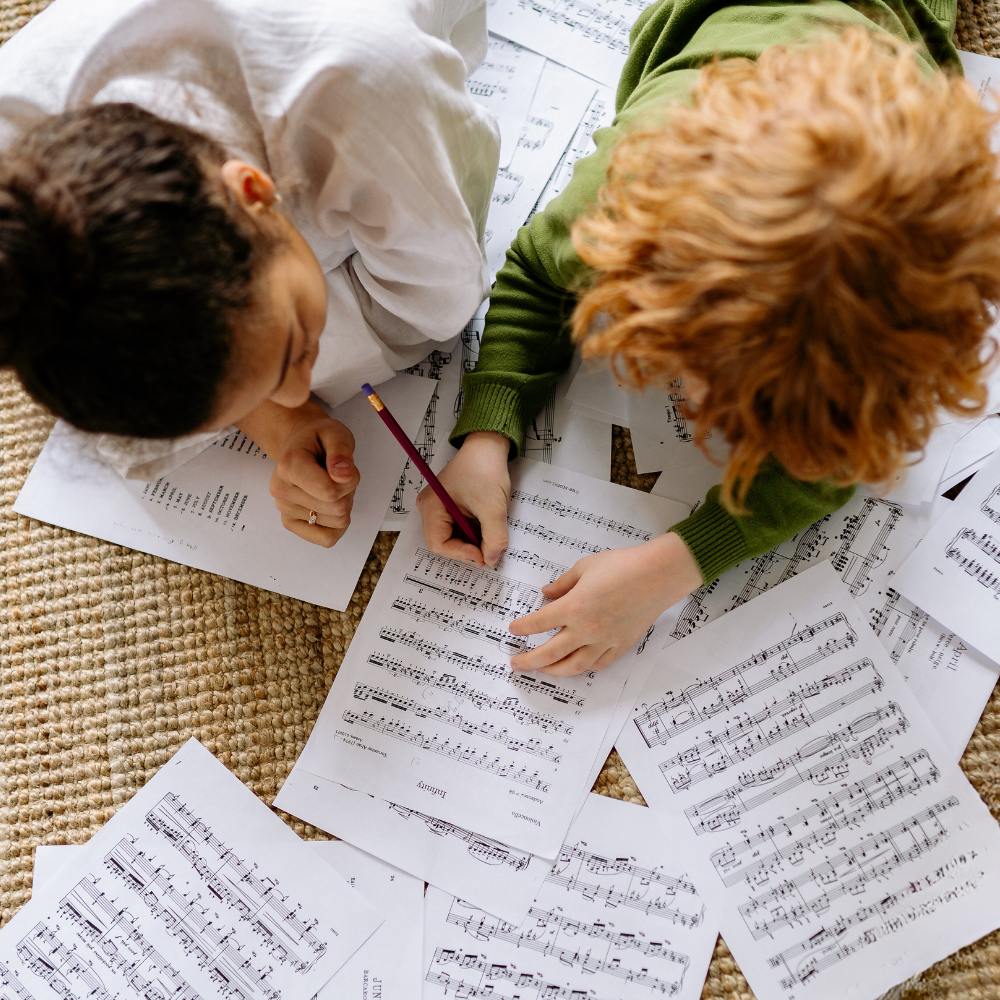
Take part in three exclusive workshops every term, covering musicianship, technique, theory, and creativity.
Readiness is less about age and more about self management. If students are able to work independently for 20 minutes at a time, they should be ready for these lessons.
For rotating lessons three students attend the same 60 minute lesson. During the lesson students rotate through three different stations:
- One-on-one lesson with the teacher
- Working independently on the digital piano
- Completing music theory lab activities
Rotating Lessons are different to group lessons, as although students are attending their lesson at the same time, they aren’t working on the same material. All activities are tailored to the age, stage, and interests of individual students.
If you’d like more information about rotating lessons click here.
The one-on-one part of the lesson looks a lot like a traditional piano lesson: the student and teacher work together on learning and reviewing pieces, theory concepts, and technical exercises.
During their independent work on the digital piano students complete assigned tasks which can include: practising pieces and scales, sight reading, ear training, composing, improvising, and learning pieces independently.
For the music theory lab students focus on a different topic each week, which provides a great overview of essential concepts. Activities include: completing theory worksheets, watching music theory videos, playing music apps, and completing special interest projects.
For one week each term our usual weekly rotating lessons are replaced with three different workshops. Students from the Foundation and Expansion programmes are able to attend as many as they want.
There are a variety of topics including technique, style, theory, and music history. The workshops are a great opportunity to explore new topics and cover other material in more detail.
Students of different ages and stages attend the same workshops, which have a range of activities and material suitable for different levels.
Regular practice is essential to making progress, so developing good practice habits will help you get the most out of music lessons.
Students will complete twenty minutes of practice as part of their weekly lessons, and it’s a good idea to try and fit in at least two more practice sessions between lessons.
